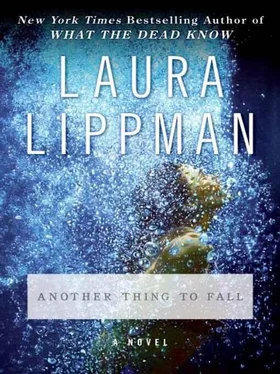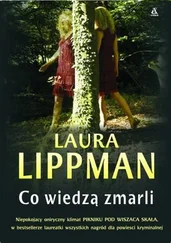“That’s so… rude,” Johnny said, genuinely offended on Selene’s behalf. “Maybe illegal.”
“I don’t read anything, or listen to voice mail. I just check the senders. You know what I found under her bed this morning, when I was looking for alcohol?”
“Alcohol?” Tess asked, reaching for the iPhone and running her own check. Several calls from Ben – but nothing to him.
“No, not a drop, not even a can of malt liquor. I found two books – Edith Hamilton’s Greek mythology and a copy of Kristin Lavransdatter. ”
“You might have sparked the interest in Hamilton,” Tess said. “When you told her that her name was from the goddess of the moon, as opposed to a Mormon soap opera.”
“Yeah, but Kristin Lavransdatter ? And it was the third volume, to boot, The Cross . Could she possibly have read volumes one and two?”
“Maybe she thought Lavransdatter was Kirsten Dunst’s name before she changed it,” Tess offered.
“Just because she’s an actor doesn’t mean she’s stupid,” Johnny said with surprising heat. “Okay, well – Selene isn’t a raging intellectual. But you shouldn’t mock her for reading. Maybe that’s why the books were under the bed in the first place, because she thought you would make fun of her. For all Selene knows, this Lard-butter, or however you say it, is one of those books everyone has read, and she’s embarrassed not to know it.”
Whitney nodded. “And maybe monkeys will fly out my-”
Tess interrupted, hoping to placate Johnny. “At the very least, it could be for a film. The author was a Nobel Prize winner. Maybe someone’s interested in adapting it.”
“It’s already been adapted,” Johnny said. “By Liv Ullmann, back in the 1990s. But, you’re right, that wouldn’t rule out a Hollywood version, although I haven’t heard anything about that on the grapevine.”
Johnny was blushing furiously, his gaze downcast. His crush on Whitney must be really bad, Tess reasoned, if he couldn’t even make eye contact. Selene came trip-trapping back to the table in her ridiculously high heels, and Johnny muttered: “Gotta go.”
“God, he’s so jealous of me he can’t stand it,” Selene said cheerfully. “He’s even jealous that I had a stalker and he didn’t, that I was in most of the photographs and he wasn’t.”
A shred of conversation, a piece of unfinished business, came back to Tess. “The photograph at the memorial – was that one of the stalker’s?”
“I told you that,” Selene said, stroking her hair, oblivious to the fact that she was leaving little flakes of pastry behind. “I said it was the guy.”
“You said – oh, never mind. Was Greer in all the other photos as well? The ones taken by the dead man, Wilbur R. Grace?”
“Don’t be ridic. I mean, Greer was in some, but so was Ben. And Flip and Lottie. But I was in most of them. At least – I was in all the ones I saw. I don’t know, maybe there were others, but who’s going to be silly enough to stalk Greer?”
The not- the -Meyerhoffs Meyerhoffs lived in Baltimore Highlands, a county neighborhood that people found mostly by accident, taking a wrong turn en route to the Harbor Tunnel. The streets here were named for states, but the pattern was maddeningly indecipherable to Tess – Louisiana led to Tennessee, then Alabama, which was followed, of course, by Pennsylvania, then Michigan and Florida. The Meyerhoffs lived in a brick semidetached on the bottom rung, Delaware Avenue, just north of the thruway to the tunnel, where traffic was a dull, roaring constant.
Before venturing here, Tess had run a quick computer check on Jeanette Meyerhoff. Or, more correctly, paid a premium to have her own ad hoc hacker search the court files and police records. Her suspicion was that a woman who felt comfortable starting a fight at a memorial service might be prone to other crimes of impulse. She was at once gratified and unnerved by how correct her hunch was. Jeanette had a pretty lengthy arrest record – public intoxication, resisting arrest, a string of assault charges. And three of her four sons had amassed similar records, with one currently serving real time down in Jessup, on a drug distro charge.
Yet the only paper on John “JJ” Meyerhoff was a warrant issued three years ago for failure to appear in traffic court. Based on public records, JJ was the white sheep of his family.
“He was the sweetest of my boys,” Jeanette Meyerhoff said, pouring Tess a generic grape soda. She had been surprisingly affable, almost eager to talk, when Tess showed up at the door. Perhaps it was the sheer novelty of finding someone who wanted to hear JJ’s side of the relationship with Greer.
“I know – that’s not saying much. We’re scrappers. But JJ was my baby. And smart . Not book smart, although he did good enough in school, but handy. When Mr. Meyerhoff stepped out ten years ago, it was JJ who kept the roof over our heads. And by that, I mean he got up there and patched the damn thing. Patched the roof, caulked the windows. He put this kitchen in hisself.”
There was nothing extraordinary about the kitchen in which they sat, a clean and simple space, but Tess supposed that was an achievement of a kind.
“He and Greer were high school sweethearts, right?”
“Yeah, but she wasn’t Greer then, but Gina. The Greer thing is some made-up name she gave herself, after she moved away. But even in high school her family thought she was too good for him.”
“Greer’s – Gina’s – father was a teamster, right?”
“Who told you that? He drove a bread truck for H and S.” But Greer had claimed to be the daughter of a teamster when she first inquired about a job with the production. The girl had been scheming from jump. “They were always full of themselves, the Sadowskis, living west of the boulevard, over toward Linthicum.”
Baltimore was full of such arbitrary geographic distinctions. East or west of the boulevard, above or below the avenue, north or south of the water tower.
“How did they get back together, then?”
“Well, Miss Hoity-Toity had gone out to Hollywood, but her father got sick. Emphysema. And her mother said she had to come home, help her through, because she had to take a second job to pay for everything, and her old man couldn’t be left alone. JJ saw Greer at the Checkers on Belle Grove and it started all over again. He was crazy for her.”
She paused, as if regretting her choice of words. “I mean to say, he loved her no matter what she did. She could feed him a shit sandwich, and he would ask for a chaser of piss. He thought the sun and the moon rose in her. He proposed, she said yes. Then she got her promotion and had less and less time for him. I could see the writing on the wall, even if JJ couldn’t.”
Mrs. Meyerhoff had put out a package of Hydrox cookies with the grape soda, and Tess had to concentrate fiercely not to wolf down the entire package. Hydrox had disappeared from the snack food chain at least a decade ago, but such items often lived on in the tiny groceries and delis of Baltimore. Those corner stores were like archaeological treasure troves of discontinued food items. Every now and then, she unearthed a dusty bottle of Wink from deep in the cooler of such places, and it felt as thrilling as if she had found evidence of the Hanging Gardens of Babylon.
“You said she was cheating on him.”
Mrs. Meyerhoff examined the backs of her hands. They were sinewy, with knobby, ringless fingers. Had it hurt, watching her beloved youngest son purchase a ring for someone else, while her own hands went bare?
“I didn’t have stone-cold proof,” she admitted. “But I kept telling JJ, add it up. There was a man who called their apartment at all hours, demanding to talk to Greer.”
Читать дальше












